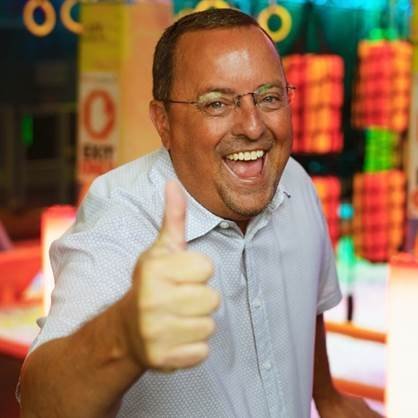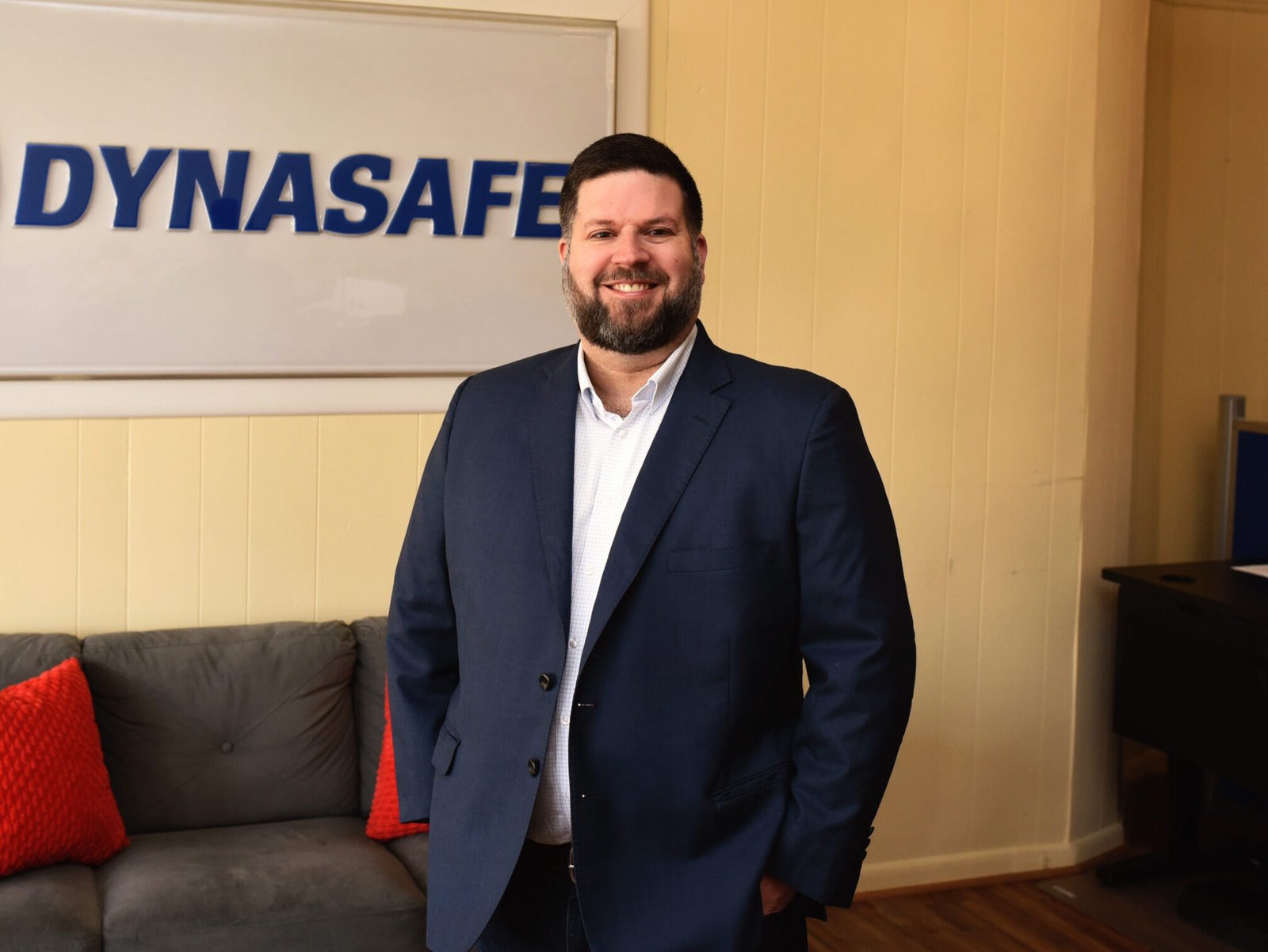I recently went one on one with Jay Thomas, CEO of Urban Air Adventure Parks.
Adam: Thanks again for taking the time to share your advice. First things first, though, I am sure readers would love to learn more about you. How did you get here? What experiences, failures, setbacks, or challenges have been most instrumental to your growth?
Jay: It all began in the summer of 1988 when my childhood sweetheart and I parted ways. My mother suggested that I make the most of the remaining summer. I lived in a small town, and she said, “Why don’t you work at Six Flags?” So, I took her advice and spent that summer working as a ride operator at Six Flags Over Texas. At the time, I was attending Texas Tech University. I had so much fun working there that I realized this could be a career path for me.
I continued my education at the University of Texas at Arlington in the Dallas Fort Worth area and continued working summers at Six Flags. During this time, I learned valuable lessons about leadership and how to apply those skills in various roles within the organization. I was fortunate to establish a close relationship with Bob Bennett, the Park President at the time. He imparted crucial insights on what it takes to become a Park President.
From my second year at Six Flags onward, I would introduce myself by saying, “Hi, my name is Jay. One day, I’m going to be president.” I vocalized this goal, and it eventually became a reality. I worked my way up to become a Director of Operations and Administration and, ultimately, the Park President.
After 30 years with Six Flags, I found myself living in the same neighborhood as Michael Browning, the founder of Urban Air Adventure Park. For several years, Michael and I would chat in-depth on all things within the amusement park industry and had immense respect for each other’s insight from our experience with Six Flags and Urban Air. One thing led to another, and I decided to retire from Six Flags and join the Urban Air family in 2018. I’ve been with the company for five years now, and it’s been some of the most fulfilling and fun years in my career yet.
Adam: In your experience, what are the key steps to growing and scaling your business?
Jay: One of the key steps is having a clear and focused strategy that keeps your team aligned with the most important objectives. At Urban Air, our strategy is built upon five pillars:
-
Prioritizing guest experience to stay ahead of our competition.
-
Ensuring our parks remain relevant with the latest and greatest innovations.
-
Enhancing franchisees’ operational efficiencies, enabling them to maximize their margins.
-
Establishing franchise financial excellence through a robust yield management strategy.
-
Cultivating a high-performance team culture where employees feel empowered to contribute to the business.
All these pillars rest on a foundation of safety and quality, an area where we never compromise. We understand the immense trust parents place in us when they bring their children to our parks, and we take every precaution to ensure their safety.
Adam: What do you believe are the defining qualities of an effective leader?
Jay: Effective leaders possess strong interpersonal skills and create an environment where individuals feel their contributions matter. I believe in listening to those closest to the business, whether they are my direct reports, franchisees, or frontline team members. Providing opportunities for people to impact the organization is essential to me and something I’ve consistently emphasized in my career.
Success comes when individuals feel that their work makes a difference. It’s not just about the paycheck but the satisfaction of knowing their efforts contribute to the organization’s goals. Helping people realize their potential and providing the environment for them to thrive is a leader’s responsibility.
Back when I assumed the role of President at Magic Mountain, one of my biggest goals was to transform the park’s image and perception. To achieve this, I took a unique approach. I began by experiencing the park as a regular guest. I parked in the lot and entered the park just like any other visitor. This allowed me to gain valuable insights.
One issue that became apparent was the cleanliness of the park. People perceived it as being unclean, and one common problem was leaves scattered throughout the park, which were associated with trash. When I discussed this with the team, I encountered resistance, and many explained why it couldn’t be resolved.
I challenged them to shift their perspective from what they couldn’t do to what they could do to make a difference. To illustrate the point, I recall a presentation from the park services team. They opened a PowerPoint presentation, and on the first page, it simply read, “We need 5 Billy goats.” No, they were not referring to the animals, but the large outdoor vacuum cleaners which would run in strategically located positions in the park cleaning leaves from multiple blowers and moving leaves across the grounds to specific corners of the park.
I decided to support this idea and provided the team with all the necessary resources and allowed them to operate the plan during normal operating hours. I wanted guests to see we were working to make a difference. Two weeks later, they came back to me with a box containing the last three leaves removed from the park. The message was clear: we would never have leaves littering our grounds again.
This experience made a profound impact on me with how empowering individuals and encouraging them to take ownership of their work can lead to remarkable results. The employee who spearheaded this initiative took immense pride in his job and devised a plan to achieve the seemingly impossible.
The lesson here is to identify the “leaves” in your own area, those obstacles or challenges that can be overcome with the right mindset and determination. I continue to apply this approach in my leadership style to this day.
Creating a high-performance team culture involves changing the collective mindset and encouraging a sense of ownership and responsibility. It’s about empowering individuals to make a difference and fostering an environment where they feel they can truly impact the organization positively.
Adam: How can leaders and aspiring leaders take their leadership skills to the next level?
Jay: Continuous improvement is vital. Leaders should strive to learn continuously, whether by reading new leadership books, listening to the experiences of other leaders, or seeking personal development opportunities. The key is not to copy other leaders but to integrate new learnings into your leadership style while drawing from your experiences.
You don’t need to be an expert in your field to be a great leader. Many exceptional leaders have taken on roles with no prior experience but have excelled because of their leadership qualities. It’s about leading experts effectively to achieve desired outcomes.
One of the best pieces of advice Bennett shared with me was understanding as you move up the leadership ladder, remember that loneliness is a common feeling. However, you can rely on your experiences and the insights gained along the way to make informed decisions and shape your organization’s culture and environment for growth.
Adam: What are your three best tips applicable to entrepreneurs, executives, and civic leaders?
Jay: To level up your leadership skills, consider these three tips:
-
Embrace generational diversity: Recognize that different generations bring unique traits and experiences to the table. Understand and leverage the strengths of each generation instead of making comparisons. Effective leadership means motivating and uniting diverse groups toward common goals.
-
Communicate effectively across generations: To motivate and lead diverse groups, establish clear objectives, distinct goals, and a shared vision. Effective communication bridges generational gaps and helps build a cohesive team.
-
Focus on what truly matters: Amid busy schedules and numerous tasks, take a step back to view your organization from your customer’s perspective. Ensure your team sees the importance of delivering on customer expectations, as this is key to sustained success.
Adam: What is your best advice on building, leading, and managing teams?
When you step into a new leadership position, it’s natural to have doubts and wonder if you’re up for the challenge. You might question if you have the expertise required. However, at such moments, it’s essential to trust in yourself. You’ve been entrusted with the role because of who you are as an individual and the skills you bring to the table. Even if you don’t have all the technical expertise, remember that being a great leader means continually pushing for improved performance.
Adam: What are your best tips on the topics of sales, marketing, and branding?
Certainly, in the realms of sales, marketing, and branding, there’s an important aspect that we should keep in mind. We must recognize that as leaders, we’re part of different generations, each with its unique traits shaped by our formative years. Rather than viewing other generations as fundamentally different or inferior to our own, we should seek to understand the strengths inherent in each one.
To effectively motivate and lead diverse teams, follow these three essential steps:
-
Embrace generational diversity: Understand and appreciate the qualities that each generation brings to the table. Avoid making unfair comparisons and instead focus on leveraging the unique strengths of each group.
-
Foster effective communication: Bridge the generational gaps by setting clear objectives, specific goals, and a shared vision. Effective communication is the key to unifying and motivating teams from different generations.
Keep a common vision: To drive success, align your teams with a shared vision that keeps everyone motivated and focused on the common goals we aim to achieve. This approach empowers you to harness the unique contributions of every generation within your organization, be it in the corporate world or civic leadership. Ultimately, making a positive impact on the world is what matters most, and I hope that my life’s work reflects that commitment to leaving a lasting, positive legacy.
Adam: What is the single best piece of advice you have ever received?
Jay: One invaluable piece of advice I received early in my career was the importance of venturing into new roles and embracing diverse aspects of an organization. This guidance encouraged me to take calculated risks that I might have otherwise avoided. It pushed me to learn different facets of the business and integrate them into my leadership style.
It’s not necessary to be an expert in every area, but understanding the inner workings of various parts of the organization enhances your ability to make informed decisions and bridge gaps between departments. Embracing different roles and experiences has been a pivotal factor in my career progression.
Adam: Is there anything else you would like to share?
Jay: I’d like to emphasize the significance of seeing your organization from a customer’s perspective. In our busy lives, leaders tend to focus on tasks and initiatives. However, it’s crucial to step into the shoes of your customers, whether you’re running a theme park or any other business.
By experiencing your product or service as a customer would, you gain valuable insights into what truly matters to them. It’s a reminder to balance the demands of work with cherishing the important moments in your family’s life, as these moments are often fleeting. Life is a series of blinks, and we must cherish each one.









